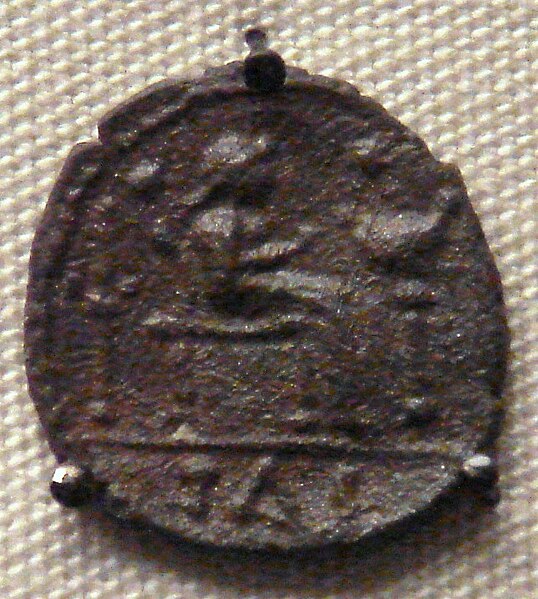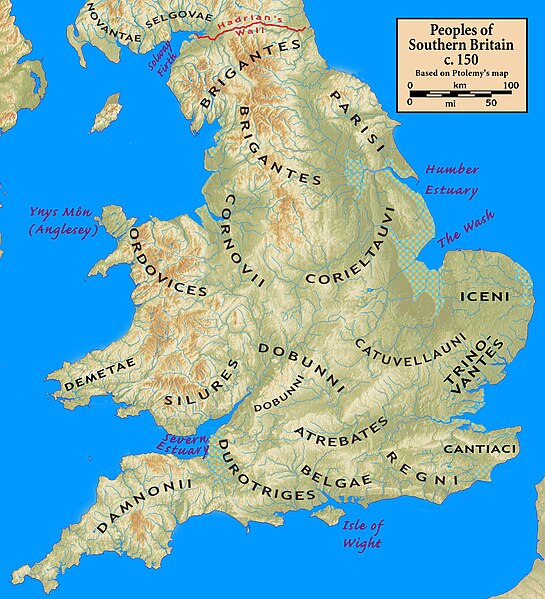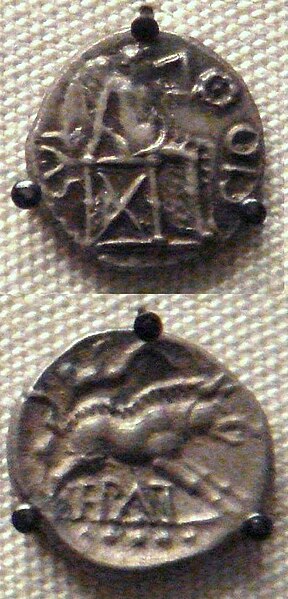Cunobeline or Cunobelin, also known by his name's Latin form Cunobelinus, was a king in pre-Roman Britain from about AD 9 to about AD 40. He is mentioned in passing by the classical historians Suetonius and Dio Cassius, and many coins bearing his inscription have been found. He controlled a substantial portion of south-eastern Britain, including the territories of the Catuvellauni and the Trinovantes, and is called "King of the Britons" by Suetonius. Cunobeline may have been a client king of Rome, based on the images and legends appearing on his coins. Cunobeline appears in British legend as Cynfelyn (Welsh), Kymbelinus or Cymbeline, as in the play by William Shakespeare.
Coin of Cunobeline
Bronze coins of Cunobelin 1–42 CE. "CAMU" refers to Camulodunon, where the coin was minted. Museum of London.
The Catuvellauni were a Celtic tribe or state of southeastern Britain before the Roman conquest, attested by inscriptions into the 4th century.
Catuvellauni, Tasciovanus, "Hidden Faces" gold stater. Obv: stylized crescents and wreaths with hidden faces. Rev: Celtic warrior on horse right, carrying carnyx.
Coin of Tasciovanus, king of the Catuvellauni.
The Celtic tribes of Southern Britain showing the Catuvellauni and their neighbours.
Coins of Epaticcus, king of the Catuvellauni.






